There’s not much about me that is “cool”, except maybe two things. First, I was born in Australia. And second, I used to work for Roger Corman. Corman died on May 9 at the age of 98.
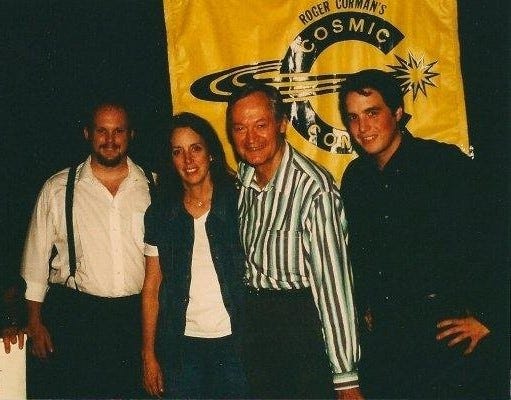
In the early 90s, there was an explosion of comics publishing brought about by the success of Image Comics (composed of such refugees from Marvel Comics as Todd McFarlane, Jim Lee and Rob Liefeld—these guys had been very highly paid artists at Marvel, but said they would prefer to own the means of production, thank-you very much) and the fad for “collectible” comics. Corman had a young attorney, Marcus Bastida, working for him who was tuned into this kind of thing. Bastida had a kind of huckster energy, which probably explains how he was able to convince Corman to start a comic book publishing house (and perhaps why Corman hired him in the first place, recognizing a kindred spirit). I was hired to be editor in chief, for some reason.
Initially I worked in an office that was just outside of Corman’s, allowing me to hear his mellifluous and insinuating voice dealing with the mundane daily issues of running a super-low-budget film production studio that mostly produced Z-grade straight-to=cable garbage. I also heard quite a lot about Corman family drama from his gossipy assistant, Siobhan McDevitt. But eventually, they moved the comics division (me and publisher Bastida, at first) from the posh but unhip Brentwood neighborhood to a new office on Santa Monica Blvd. in West Hollywood. These offices were obtained by Corman by trading old film rights for real estate and cash. We shared the space with the music department and some of the film editors, so for a year or so there, I could say I was in the film industry.
The comics publisher we created was called Roger Corman’s Cosmic Comics. We were hilariously unsuccessful. We hit the fad of collectible comics at just the right moment for it to collapse. “Collectible” comic books were just as much of a bubble as tulips in 17th century Holland, and we caught the wave after it crested. But the big problem was that I was not a gifted editor, and I absolutely did not have my finger on the pulse of pop culture. The basic subject matter of each comic was determined by whatever movie rights, vintage and current, Corman happened to own. (Leveraging his ownership of the rights to a lifetime of movies made or produced by Corman is one of the main ways Corman became a fabulously wealthy mogul.) My contribution to these basic movie plots was to camp them up—to amp up the absurdity, an approach that doesn’t take the material seriously, which in retrospect I feel was important to fans. Corman was a hands-off mogul, but he watched the bottom line. When the sales of our first issues were extremely disappointing, Corman instantly fired Bastida, replacing him with McDevitt. Bastida ran Cosmic Comics just fine as we got started—it wasn’t his fault that Cosmic Comics sales were terrible. McDevitt was also a good manager and she made a valiant effort to boost sales and cut costs. And she was a favorite of Corman, so her tenure as publisher bought us a few more months, before Corman finally asked himself, “Why am I shoveling cash into this furnace?” and fired us all. Here are most of the comics published by Cosmic Comics.
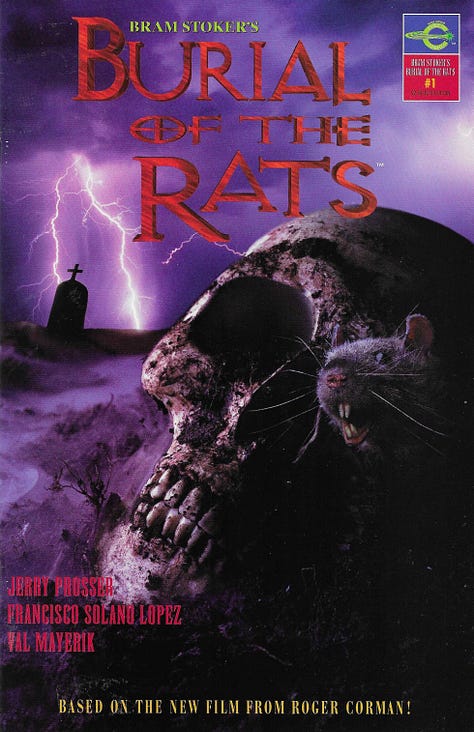
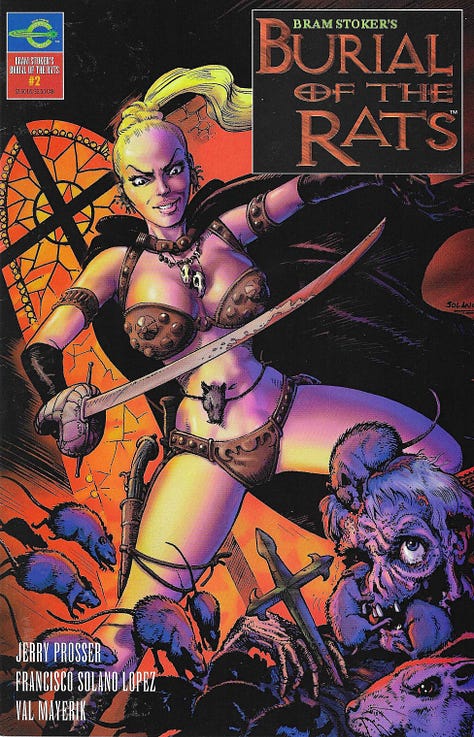
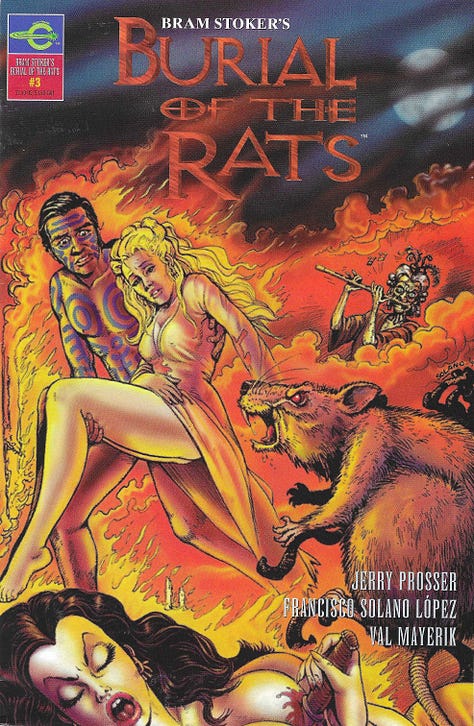

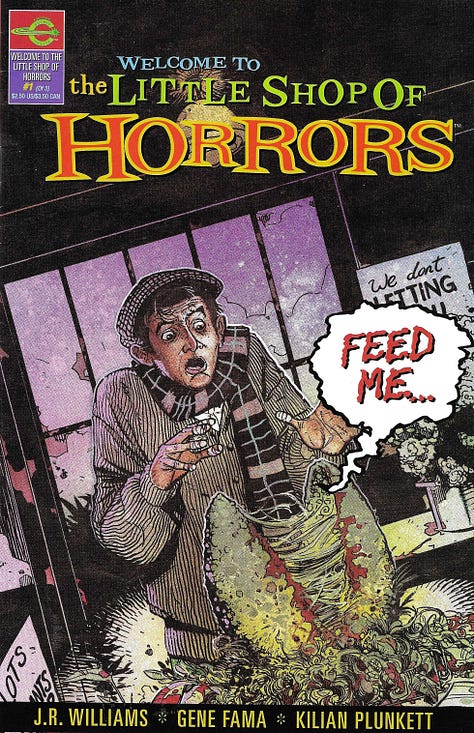
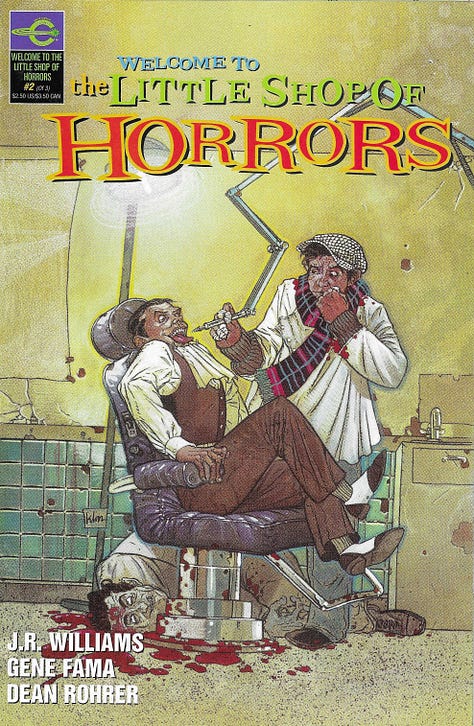
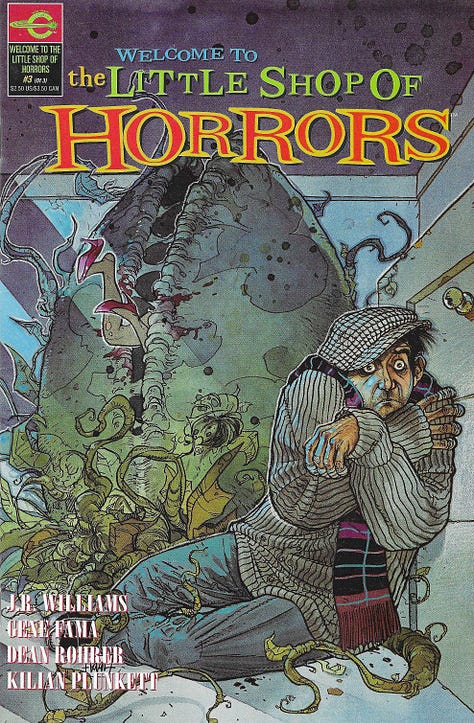

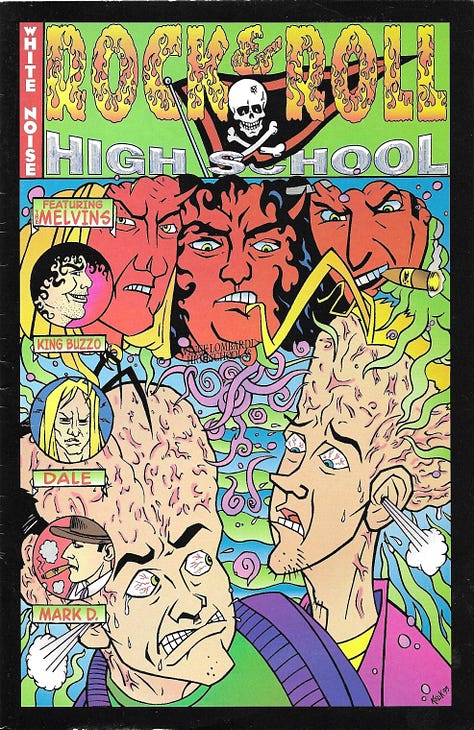
And here are all the issues of Death Race 2020 that we published.

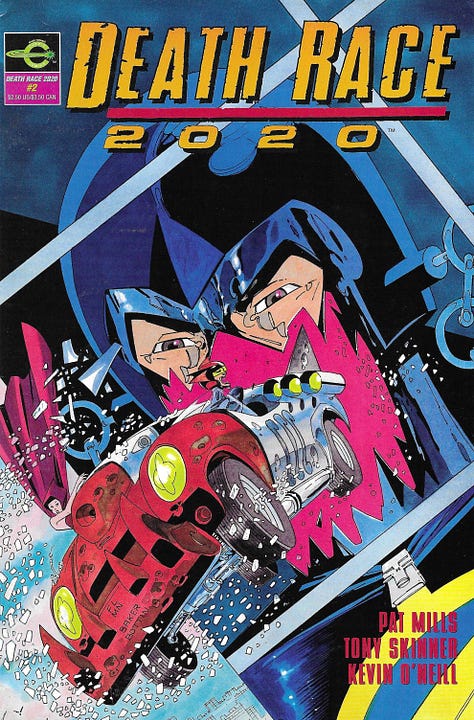

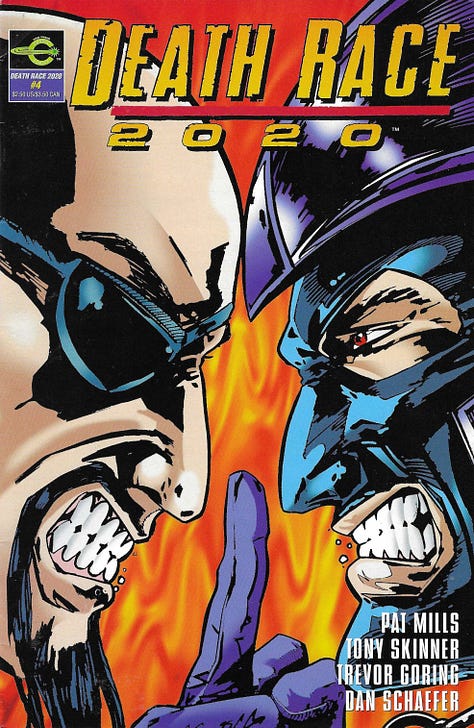

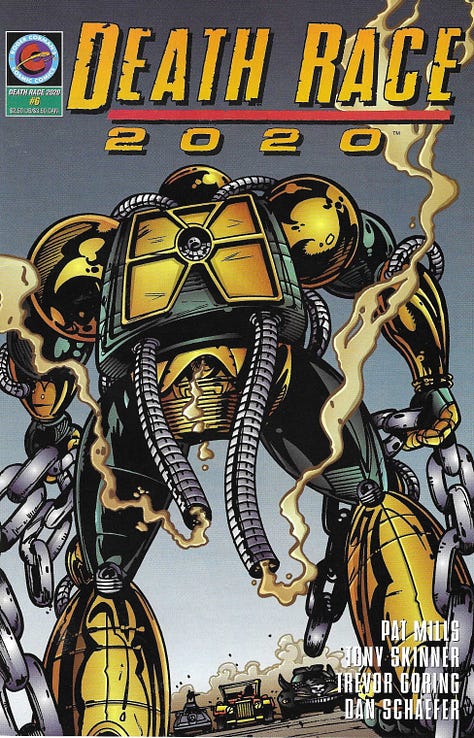
Corman is getting lots of excellent obituaries, which all mention Corman’s most notable creation, the original The Little Shop of Horrors movie, and all the Hollywood legends who got their starts working at Corman’s low budget movie factory. It was a cheap way to get paid to learn how to make movies. I also recommend Corman’s entertaining 1990 autobiography, How I Made a Hundred Movies in Hollywood and Never Lost a Dime. But this post shows a tiny part of Corman’s legacy that I had the bizarre fortune to be involved with.
[Please consider supporting this publication by becoming a patron, and you can also support it by patronizing our online store. And one more way to support this work is to buy books through The Great God Pan is Dead’s bookstore. ]




You're a really good writer Robert, I can tell you really love what you do. Hope I see you around the old art Barn sometime soon!